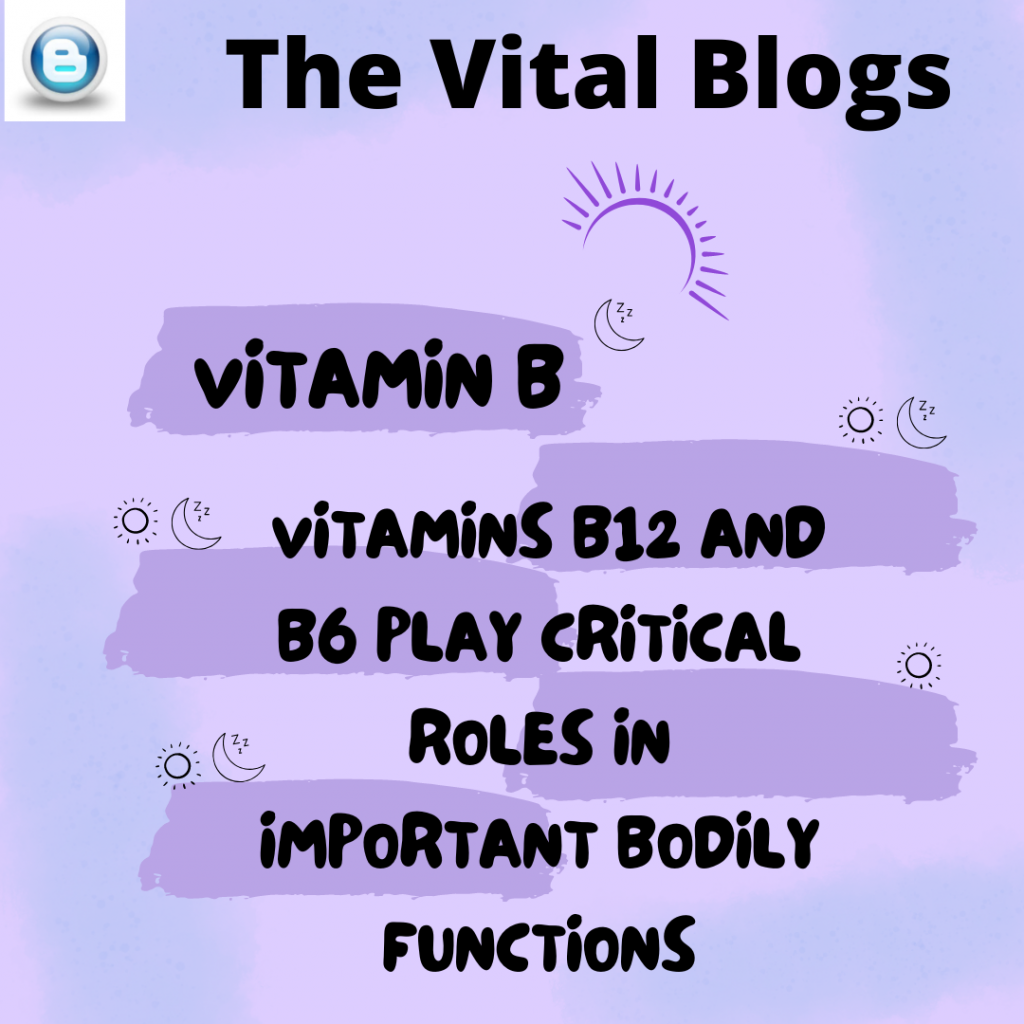
The Danger of a Vitamin B12 or B6 Deficiency.We’ve all heard about the importance of vitamins and minerals for our health, but it’s rare that we hear much about their deficiencies. A vitamin B12 or B6 deficiency can result in anemia, reduced immune function, and neurological damage, so it’s important to understand the symptoms and causes of these deficiencies to protect your health. Here’s what you need to know about the symptoms and causes of a vitamin B12 or B6 deficiency.
What are B vitamins?
Vitamin B12 and vitamin B6 are two essential nutrients found in animal-based foods that are often not present in plant-based foods. Specifically, vitamin B12 is only found in animal-derived products like meat, fish, eggs, and dairy while vitamin B6 is predominantly found in meat and poultry. These two vitamins work synergistically with one another and help us get the most out of our food by absorbing nutrients more efficiently. The risk for developing a deficiency in either one can happen without knowing it because the symptoms might not show up until much later down the line when more damage has been done to your body.
Are you getting enough?
Today, vitamin B 12 and B 6 deficiencies are on the rise, especially in older adults and vegetarians. But how can you tell if you’re getting enough?
1) You often feel sluggish 2) Difficulty concentrating 3) Memory lapses 4) Poor mood 5) Headaches 6) Loss of appetite 7) Lack of energy 8 ) Dry mouth 9 ) A sore tongue 10 ) Unusual weight loss 11 ) Tingling sensation in feet and hands 12 ) Red, sore tongue 13) Constipation 14). Loss of taste 15). Painful swelling in fingers 16). Excessive bruising 17). Vision problems 18 ). Extreme cases are more severe such as weakness, irritability, confusion and memory impairment.
Why should I take supplements?
Without sufficient levels of vitamin B, the body cannot produce hemoglobin, the oxygen-carrying protein in red blood cells. Over time, this can lead to anemia and exhaustion. Low levels can also cause memory loss and depression. If you’re vegan or vegetarian, you should take supplements as it’s difficult to get enough vitamin B through diet alone. Vegetarians must have their levels tested periodically as they are at increased risk for deficiency.
Some people are more likely to develop deficiency symptoms due to an autoimmune condition called pernicious anemia . This condition prevents the stomach from being able to absorb these vitamins from food and only allows them through intravenously (where iron is usually given).
Vitamin supplementation isn’t just for maintaining good health-it’s for saving lives.
What happens if you don’t get enough B vitamins?
Vitamin B6 and vitamin B12 deficiencies can lead to numbness, tingling, and a host of other symptoms. These deficiencies can also affect your cognitive function and mental health. Without these crucial vitamins, you may be much more prone to developing skin conditions and stomach ulcers. Plus, these deficiencies are prevalent in alcoholics as they cannot absorb vitamin B 12 through the gut as easily because it requires intrinsic factor to do so. In fact, up to 50% of those with chronic alcoholism will have a vitamin B deficiency. (source)
I’ve personally experienced how powerful and scary a severe deficiency is – I was dizzy all the time, had pain in my limbs from nerve damage (peripheral neuropathy), and had sores on my tongue which didn’t heal for weeks at a time due to an enzyme deficiency. That’s why I take care not only to get enough every day but also make sure that I always eat foods rich in these vitamins as well.
What are some symptoms to look out for?
According to the Office of Dietary Supplements, some symptoms include decreased appetite, weight loss, nausea and vomiting, brittle nails, hair loss and depression. When combined with severe fatigue, these symptoms are alarming. There are many ways to get your vitamins so that you can avoid deficiency. For instance, eating enough leafy greens can help increase your intake. You could also take a vitamin supplement and drink plenty of fluids. It is best to speak with your physician if you feel like there is something wrong but don’t have any physical symptoms.
Have your levels checked by your doctor
Here are some of the most common symptoms: fatigue, irritability, changes in your mental state and mood, lack of concentration, confusion and lack of coordination. If you experience any these symptoms for more than two weeks, I recommend that you have your levels checked. A common cause for this is an eating disorder. I recommend checking with your dietician to make sure that your eating is adequate to provide what your body needs. If you do not want to speak with your dietician due to privacy concerns or they are unavailable please speak with someone at a sexual health clinic near you as they can often assist and treat under certain circumstances as well.
Conclusion
As we discussed, vitamins B12 and B6 play critical roles in important bodily functions. So, it is vital to ensure that you are getting enough in your diet and/or taking supplements if need be. Fortunately, they are both available at most drug stores and grocery stores. The bottom line is: remember that eating foods rich in these two vitamins can go a long way to keep the body functioning at its best.









